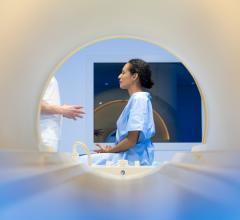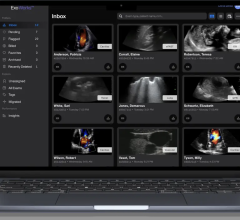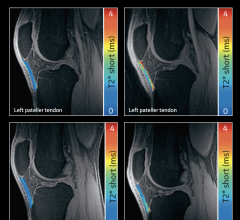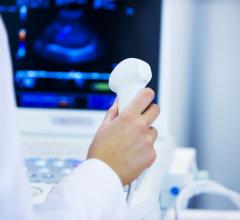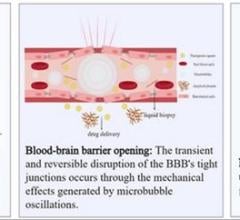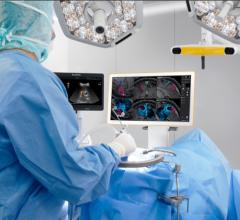
Aug. 22, 2024 – AISAP has announced that the U.S. Food and Drug Administration (FDA) has granted 510(k) clearance for its first-of-a-kind, AI-powered AISAP CARDIO point-of-care ultrasound (POCUS) software platform.
The cloud-based platform combines four computer-assisted diagnosis (CADx) modules of valvular pathologies and eight key measurements into a single, comprehensive, cardiac ultrasound software package that automatically generates analyses, interpretations and reports. CARDIO empowers clinicians with basic scanning skills to accurately diagnose up to 90 percent of the most common cardiac structural and functional parameters right at the bedside within minutes.
“AISAP CARDIO has the potential to be a game-changer in the world of point-of-care ultrasound,” said Smadar Kort, MD, system director of Non Invasive Cardiac Imaging, Stony Brook Medicine, and past governor of the American College of Cardiology. “We know that structural heart disease and heart failure are the leading causes of hospitalization and morbidity in the U.S. Enabling a wide variety of qualified physicians to quickly and accurately diagnose these conditions at the bedside could lead to earlier detection and treatment, and better patient outcomes, as well as greater efficiencies and cost savings to health systems, while ultimately saving countless lives.”
AISAP CARDIO is indicated to provide diagnostic assessment and measurements of several key cardiac structural functional parameters, including: presence of valvular pathology (regurgitations of the mitral, tricuspid, aortic valves and aortic stenosis), and measurements of left ventricle ejection fraction (LVEF), right and left ventricular dimensions, right ventricular fractional area change (RV FAC), atrial areas, ascending aorta diameter, and inferior vena cava (IVC) diameter.
The platform is designed to generate reliable and validated assessments early in the patient evaluation process and whenever needed during the course of therapy. It is a vendor-agnostic, scalable solution that seamlessly integrates into the clinical workflow, as well as existing EHR/EMR and PACS systems.
The software generates accurate reports in minutes using inexpensive devices, enabling emergency medicine, critical care, internal medicine, hospitalists and primary care physicians to make informed care decisions at the bedside. Prospective data have shown that use of CARDIO has generated improvement in clinician performance, with care pathway changes in one third of scanned patients. The platform also offers telemedicine, cloud computing and education tools.
“This milestone makes AISAP the first company in the world to secure FDA clearance in the CADx pathway for the comprehensive diagnosis of structural heart diseases using POCUS. It marks a big step in our goal of delivering point-of-care assisted diagnosis, or POCAD, with unparalleled scalability and accessibility – from the largest academic centers to the most remote rural locations,” added Ehud Raanani, MD, co-founder, AISAP, and director, Leviev Cardiovascular and Thoracic Center, Sheba Medical Center.
CARDIO was trained on hundreds of thousands of studies comprising over 24 million echo video clips. AISAP’s novel algorithms on POCUS devices has been validated in multi-national, multi-site, randomized, multi-reader, multi-case clinical trials at Mass General Brigham, Thomas Jefferson University Hospital, Mayo Clinic, Inova Fairfax Medical Campus, Crozer-Chester Medical Center and Stony Brook University Hospital.
The accuracy and impact of the novel CARDIO algorithms on POCUS cases were shown in standalone model performance and clinical reader performance studies led by Dr. James Hillis, MBBS, DPhil, director of Clinical Operations at Mass General Brigham AI. Data from the studies demonstrated that AISAP CARDIO enables non-cardiologist physicians to interpret point-of-care echocardiograms just as well as expert cardiologists of the MGB echocardiography lab. That testing demonstrated that measures performed by the AISAP CARDIO device were as close or even frequently closer to the mean of 3 MGB cardiologists than each individual cardiologist. Standalone performance for significant major valve disease pathology (aortic stenosis and regurgitation and mitral and tricuspid regurgitation) had a 93 percent sensitivity and 93 percent specificity.2
“We assessed the device’s performance for two key tasks: the calculation of eight cardiac measurements and the interpretation of four valvular pathologies,” said Dr. Hillis. “The results demonstrated that the use of the device improved the accuracy of physicians in interpreting the valvular pathologies.”
CARDIO will be available for commercial use on September 1.
Please visit www.aisap.ai for more information or to book a demo.

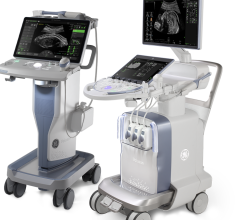
 July 19, 2024
July 19, 2024 
